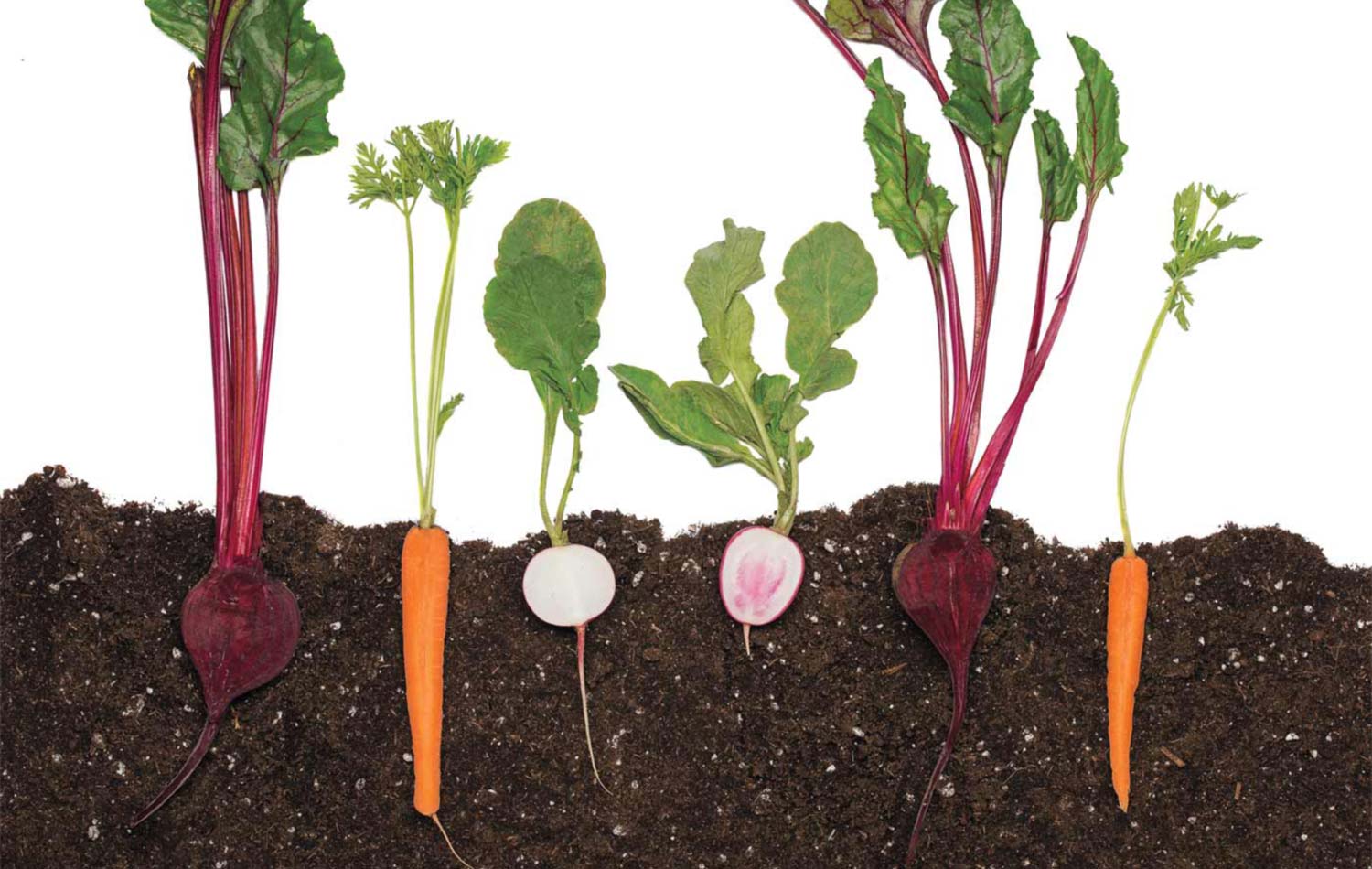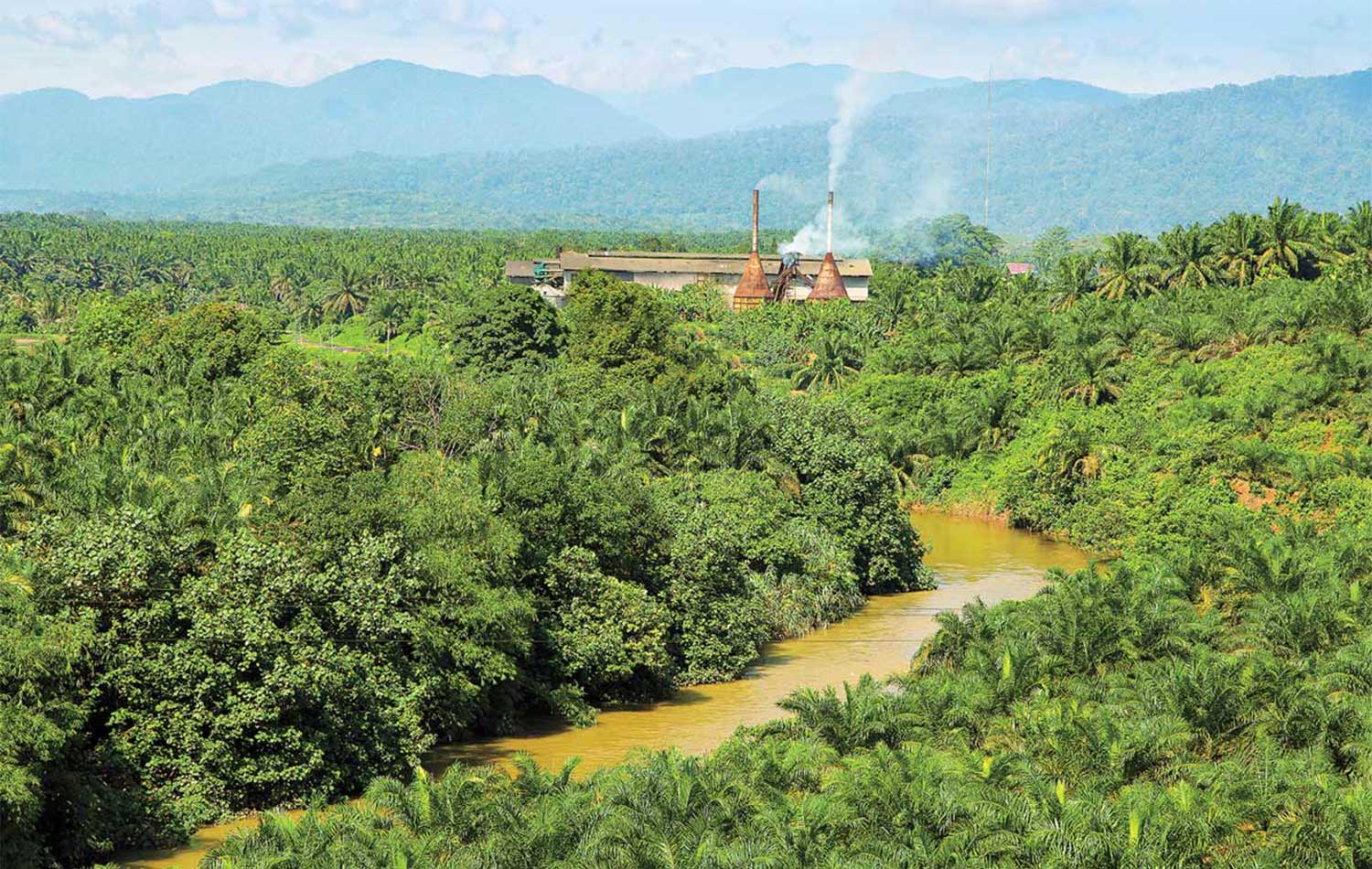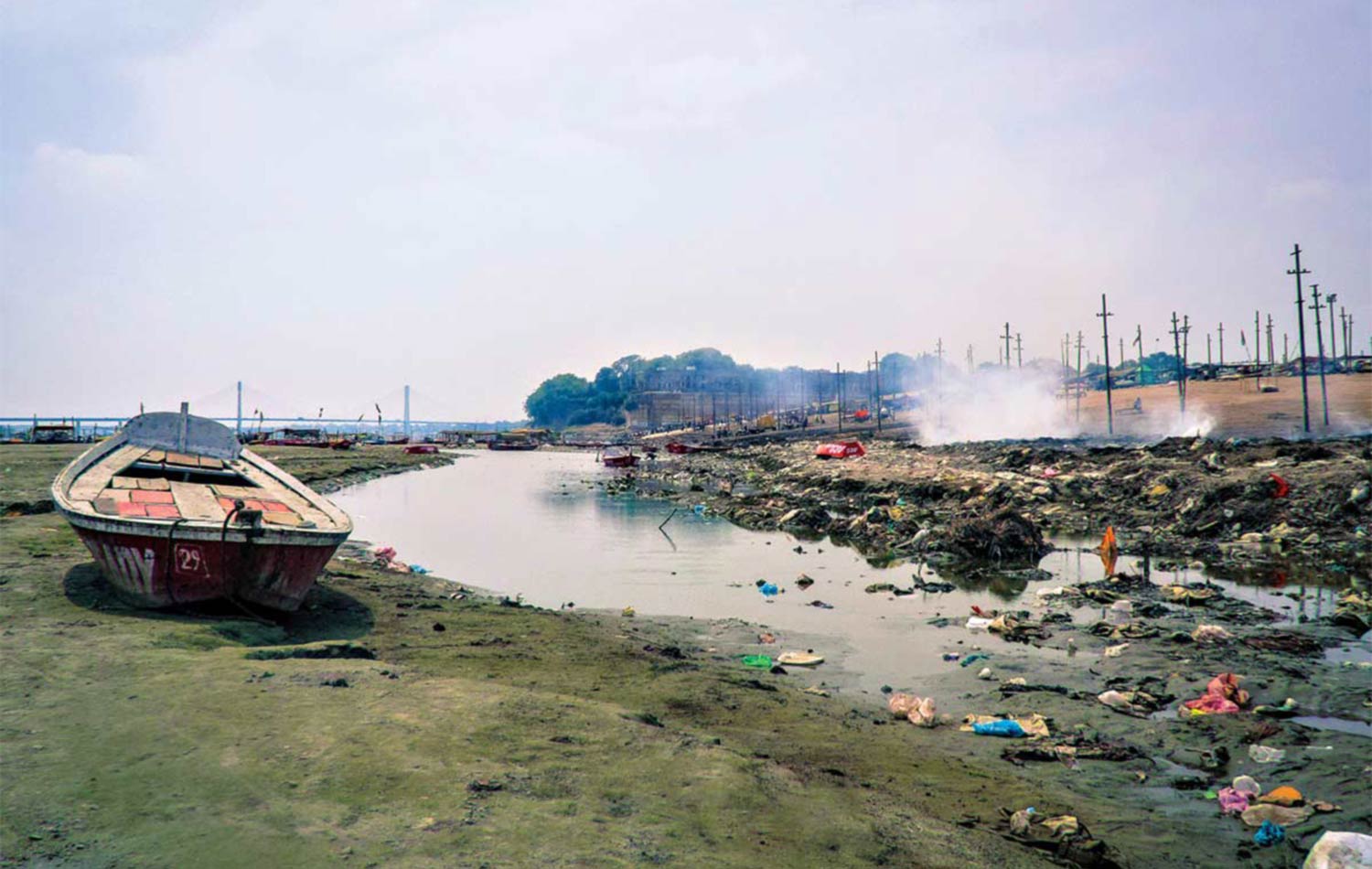We eat an average of three meals a day, and constantly make decisions about food’s effects on our mental and physical well-being. We know that too much sugar can be a factor in developing diabetes, that too much salt can increase the risk of a stroke, and that too much fat can raise cholesterol and lead to heart disease. But have we ever thought about how our food choices harm the environment?
Producing food — especially within the livestock industry — is the source of many environmental problems, including global warming, deforestation, and water consumption. However, most of us are unaware that these problems come from animal agriculture. By educating ourselves about the effects of animal agriculture, making better food choices, and advocating for more sustainable food systems in our communities, we can achieve a healthy relationship with our food and the environment.
Environmental Impacts
“[Animal agriculture] is the leading cause of virtually every single environmental ill facing the planet,” says Keegan Kuhn, co-director of a recently released documentary, Cowspiracy: The Sustainability Secret. “Rainforest destruction, topsoil erosion, water pollution, water consumption, deforestation, species extinction, habitat destruction, ocean dead zones, the list goes on and on,” he says.
According to reports by the Food and Agriculture Organization of the United Nations (FAO), animal agriculture is responsible for approximately 18 percent of global greenhouse gas emissions. However, reports from the Worldwatch Institute (a research establishment dedicated to global and environmental concerns) claim that up to 51 percent of greenhouse gases come from animal agriculture.
With calculations as different as these, what’s clear is that the environmental impact of the livestock industry is difficult to measure. Dr. Tara Moreau, associate director of Sustainability and Community programs at the University of British Columbia (UBC) and an FAO consultant, says that discrepancies in these measurements are merely a result of different methodologies.
“The science itself is somewhat uncertain depending on the breed of livestock you’re dealing with, depending on the type of feed [these breeds] are consuming, depending on where you are in the world. There are so many factors it quickly gets complicated,” she says. Despite these inconsistencies in data, Moreau says there’s no doubt that animal agriculture is a significant source of greenhouse gases and other environmental issues. Although statistics and data are significant indicators of the current situation, it’s more important to realize that our food choices have a negative environmental impact.
According to the Environmental Working Group (EWG), the most negative environmental effects come from digestion-generated methane, feed production, manure, processing, transportation, and waste. Feed production, for example, requires large amounts of fertilizer, fuel, and pesticides; methane (a greenhouse gas 2.5 times more harmful than carbon dioxide) is released into the atmosphere through animals’ digestive processes.
The Business of Food
Even though animal agriculture has been proven to cause some serious climate problems, there’s a large silence around the effects of our meat industry. Eleanor Boyle, Vancouver-based educator and author of High Steaks: Why and How to Eat Less Meat, attributes this to the mismanagement of priorities, emotional attachment, advertising, and a disconnection between people and the food production cycle.
“Food production is a really big business,” Boyle says, and food companies are always sending a message — whether it be in text or images on food packaging — that farms are pristine places where animals graze in open fields and the land is cared for. “There’s also a lot of advertising to make people feel that they need large amounts of [animal] protein,” but a lot of these messages aren’t true, she says.
Kuhn also speaks of this disconnect: “We’re so far removed from animal agriculture […] we don’t see it,” he says, “but all you have to do is drive through
an intensive animal agriculture area and you can smell the methane, you can smell the nitrous oxide, you can see the pollution, you can see the destruction.”
As consumers, we see the packaged meat in grocery store refrigerators or the burgers on our plates, but there’s also a lot that we don’t see. A negative environmental effect occurs at every step in the supply chain: cows and other ruminants are raised on overcrowded feedlots, the meat is wrapped in plastic and Styrofoam packages, transported across cities and countries on 18-wheel trucks, and is eventually disposed of at the end of the line.
“I think a bit of human nature is to have some blinders on when it comes to our food,” says Moreau. This is a global problem and if we want to make a difference, our entire population needs to make better, more environmentally conscious decisions about what kinds of foods we eat and where those foods come from. It’s also important to advocate for better food systems in our communities.
“You need all agencies at the table. You need consumers to be demanding more sustainable systems and animals that are raised with animal welfare practices, but you also need policy that supports that,” says Moreau.
Taking Initiative
As co-chair of the Vancouver Food Policy Council (VFPC), an advisory group made up of people from various sectors of the food industry, Moreau is aware of what policy is capable of. “The people who make up the [VFPC] are all representatives from the community who work tirelessly as volunteers and as agents of change in their community,” she says.
The VFPC had a large role in Vancouver’s decision to support “Meatless Monday,” an initiative that encourages people to refrain from eating meat one day per week. “Meatless Monday” began in 2003 and has now been adopted by 36 countries including Australia, Canada, Indonesia, Malaysia, New Zealand, Taiwan, and the United States.
Food certification systems, such as Ocean Wise, USDA Organic, and Marine Stewardship Council (MSC), are another example of what consumer demand can accomplish.
“Policy happens when the public wants to make it happen,” says Moreau. “It just takes individuals who find their voice and understand they can make a difference to bring forward ways that support more just and sustainable food systems.”
According to Kuhn, “We’re in the largest mass-extinction that the planet has ever seen. We need to hear the truth and the truth is that we don’t have enough land, time, or resources to continue to eat the way we do.”
A Matter of Diet
Aside from advocating for better food systems, one of the easiest and most significant ways we can make a difference is to reduce our meat consumption and to incorporate more plant-based foods into our diets. “What it comes down to, simply, is eating less meat and eating better in the way of all animal products,” says Boyle. Making the transition to a plant-based diet “is the most ecological way, and the only way, we can feed 7.2 billion people on the planet,” says Kuhn.
While Kuhn suggests that eating vegan (a diet in which no animals or animal by-products are consumed) would be the most effective option, less extreme diets such as vegetarian or flexitarian (eating a primarily vegetarian diet, but occasionally eating meat) can create a more sustainable future. According to the EWG, if everyone in the United States ate a vegetarian diet just one day a week, over the course of a year it would be like taking 7.6 million cars off the road.
Aside from reducing greenhouse gas emissions, eating less meat also significantly reduces water consumption and land use. The EWG has concluded that approximately 9500 litres of water are needed to produce only 454 grams (one pound) of beef. Richard Oppenlander, author of Food Choice and Sustainability: Why Buying Local, Eating Less Meat, and Taking Baby Steps Won’t Work, claims that 1.5 acres of land, which is capable of producing 170 kilograms of meat, can produce nearly 100 times as much food — 16,800 kilograms — if used to grow plants and vegetables.
Contrary to popular belief, incorporating more plant-based foods into your diet doesn’t have to be boring or difficult. You can experiment with ethnic cuisines that are traditionally vegetarian, shop for eco-labelled food in your local grocery store, consult vegetarian cookbooks, or try a partially vegan diet. The opportunities are endless. “We’re talking about moving forward and using all of our intelligence and everything we’ve got to date to feed everybody in the future,” says Boyle.
For decades we’ve been studying how food affects our mental and physical well-being, but it’s time to shift our energy towards something new. Food systems are at the centre of our world’s most devastating environmental problems. In order to encourage sustainability, we need to change the way we eat, the way we produce food, and the way we buy food products.
It’s important to know that we can make change happen. We live in a powerful society that constantly seeks to make our world equal, manageable, and sustainable. Food systems can change; we just need to stand up and make our voices heard.











